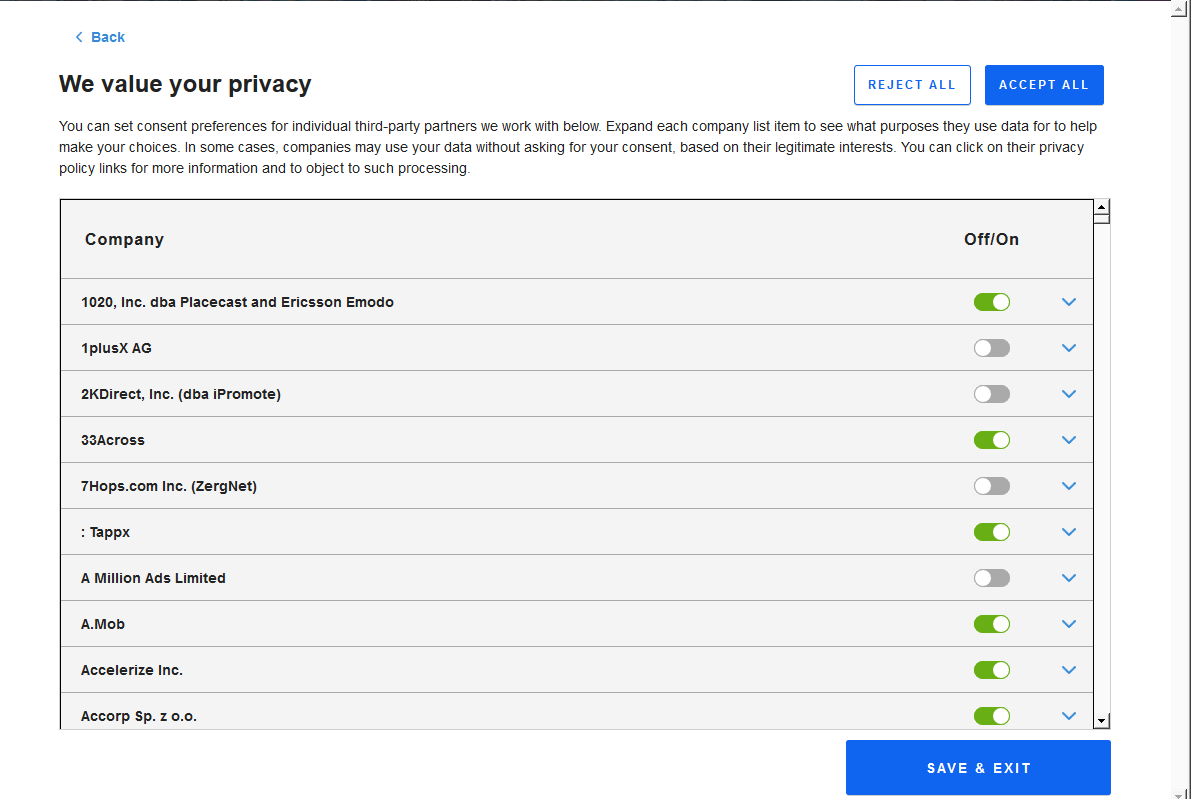The phrase “we value your privacy” smeared across the top of a cookie banner no longer has any meaning
Here’s Buzzfeed’s cookie banner after you click through to get to your preferences — they say that they value my privacy, yet have provided a list of data-gathering companies with obscure names, half of which are already set to ‘on’ by default.

That means if I chose to ignore the cookie banner or make it go away by clicking ‘accept’, ‘33Across’, whoever they are, would be gathering my data without my knowledge.
☝️Just a thought: this does not make me feel like Buzzfeed actually value my privacy.
Is this what privacy has become?
Browsing the web nowadays feels like a constant fight to make cookie banners and privacy notices disappear as quickly as possible so you can read an inane listicle for two minutes and then get on with your day. Why is it like this?
🏄♀️A couple of decades ago, the internet appeared in front of us like magic, and we began surfing the web: we plunged ourselves into online communities, downloaded dating apps, and sunk hours of our time on Reddit and Youtube
Mark Zuckerberg was sitting in front of the United States Congress, explaining that Facebook is free because, "senator, we run ads".
😱Then 2018 happened, and suddenly Mark Zuckerberg was sitting in front of the United States Congress, explaining that Facebook is free because, “senator, we run ads”. But he wasn’t able to explain why Cambridge Analytica had such easy access to the data we’ve been feeding Facebook’s social network over the last decade or so
🤷🏻♀️In the same year, the GDPR came into effect, and suddenly data was this important thing we were all supposed to care about. We still really liked the internet, but did we trust the sites and services that were built on it?
🙅🏻♀️In present day, it feels like the answer to that question is no. We begrudgingly rely on social networks, health apps, and other free services that makes our lives easier — or are completely necessary just to get basic things done. There’s no transparency over how these process our data, so naturally it’s hard to trust what’s going on behind the scenes.
The aggressive employment of cookie banners have taught us to trust less: seeing one every time you want to read an article about why millennials can’t afford houses is just an annoying reminder that we don’t really know what’s going on.
And this is exactly why, when Buzzfeed tell me that they “value my privacy”, I simply do not believe them. Knowledge of all the big data scandals, and the creepy reality of targeted behavioural advertising does not go away because a private company is asking me to trust them via their yucky cookie banner. You don’t ask for trust… you earn it.
